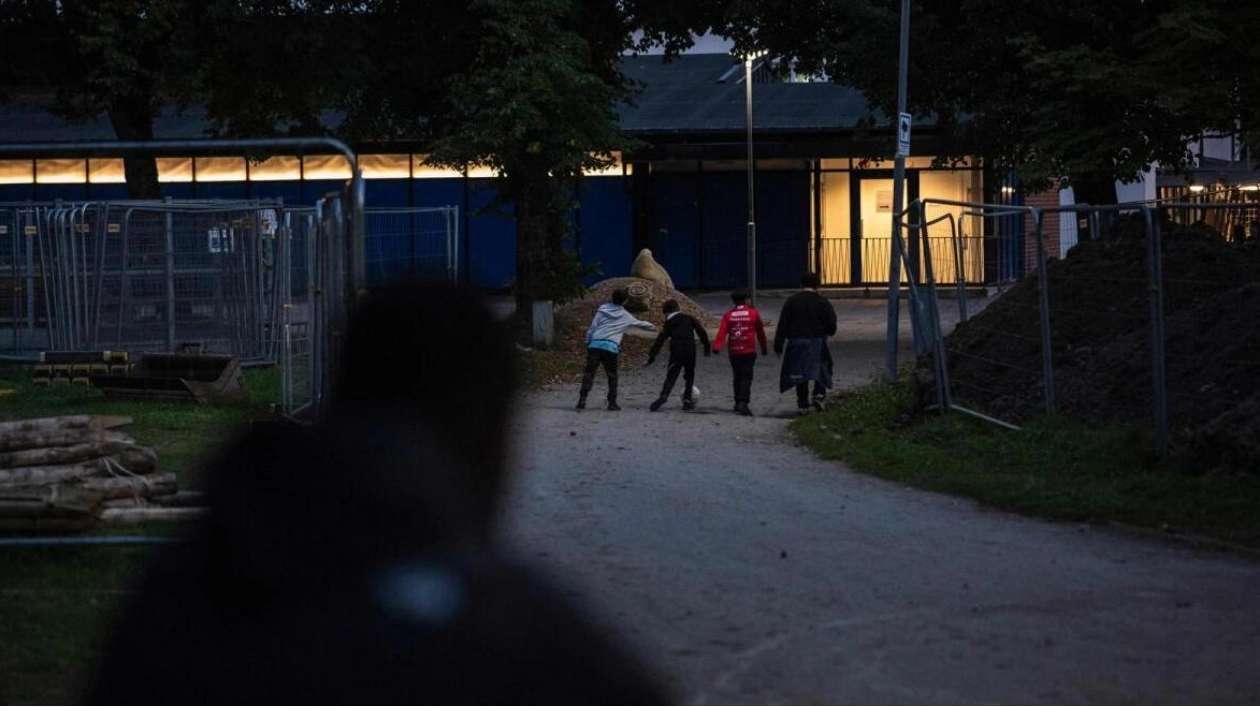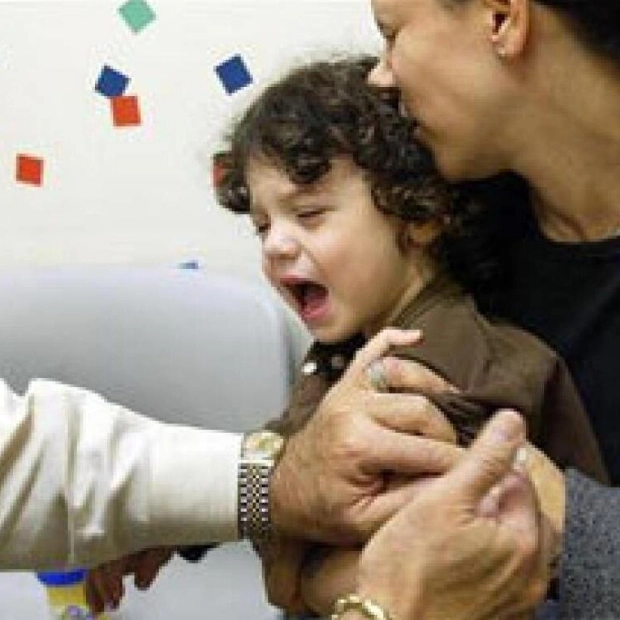Children stroll through the Baronbackarna neighborhood in Örebro, Sweden, where the nation has grappled with a rise in gang-related shootings and bombings in recent years. These incidents are often tied to disputes over the illegal drug trade in the country, which is home to 10.5 million people.
In a chilling Instagram message, an 11-year-old boy in Sweden wrote, 'Bro, I can't wait for my first dead body,' reflecting the disturbing reality where gangs recruit children too young to be prosecuted as contract killers via chat apps. 'Stay motivated, it'll come,' replied his 19-year-old contact, who then offered the child 150,000 kronor ($13,680) to commit a murder, along with clothing and transportation to the crime scene, according to a police investigation in Varmland.
In this case, four men aged 18 to 20 are accused of recruiting four minors aged 11 to 17 to work for a criminal gang. All were apprehended before any crimes were carried out. The preliminary inquiry includes numerous screenshots of the youngsters posing with weapons, some bare-chested or wearing hooded masks. Questioned by police, the 11-year-old admitted he wrote the message to appear 'cool' and 'not show his fear.'
This case is not unique. Sweden has struggled to curb a surge in gang shootings and bombings linked to drug market control and score-settling. Last year, 53 people were killed in shootings, often in public spaces with innocent victims.
Swedish gang crime is sophisticated, with leaders operating from abroad through intermediaries who use encrypted messaging platforms like Telegram, Snapchat, and Signal to recruit teens under 15. Johan Olsson, head of the Swedish police's National Operations Department, described it as a 'market' where missions are posted on forums, and the participants are increasingly young. Sven Granath, a criminology professor at Stockholm University, explained that hits are subcontracted online, with parties never meeting in person.
The number of murder-related cases involving suspects under 15 rose from 31 in the first eight months of 2023 to 102 in the same period this year. Granath noted that recruited children often struggle in school, have addiction issues, or attention deficit disorders, or have already been in trouble with the law. They are drawn into conflicts they have no connection to, acting as mercenaries.
Some children actively seek out contracts, driven by the desire for cash, adrenaline, recognition, or a sense of belonging. Flashy clothes and promises of loyalty are also enticing. Viktor Grewe, a former gang member, lamented that 'everybody wants to be a murderer' and that 'it's incredibly sad to see that this is what kids aspire to.'
Tony Quiroga, a police commander in Örebro, described the ruthless exploitation of young people by criminal subcontractors who avoid risks by hiding behind pseudonyms and multiple filters on social media.
In Örebro, volunteers patrol disadvantaged neighborhoods to talk to youths about the dangers of gang involvement. Grewe, who left gang life at 22, said young criminals don't expect to live past 25. A recent report by the National Council for Crime Prevention highlighted that recruiting kids is part of the gangs' business model, making it hard for them to leave once they're in.
Quiroga expressed despair that the police are facing conflicts 'that never end.'
Source link: https://www.khaleejtimes.com






